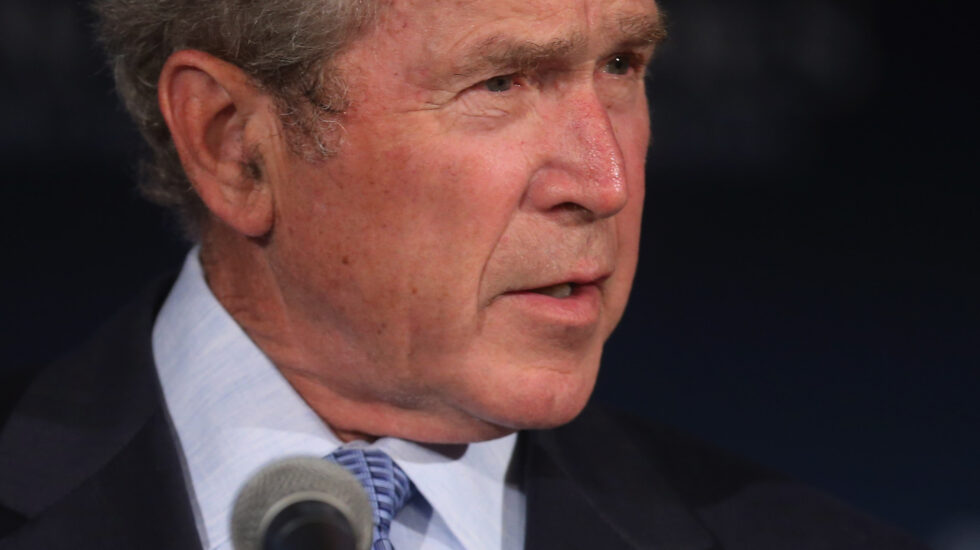The president who launched America’s longest war is watching its “tragic” end with “deep sadness.”
On Monday, George W. Bush and his wife, Laura, released a statement addressing the chaotic conclusion to the war in Afghanistan as the Taliban recaptures control of the country.
“Our hearts are heavy for both the Afghan people who have suffered so much and for the Americans and NATO allies who have sacrificed so much,” reads the statement.
The Bushes said the U.S. has “the responsibility and the resources to secure safe passage for [refugees] now, without bureaucratic delay.”
They asserted that they “are confident that the evacuation efforts will be effective because they are being carried out by the remarkable men and women of the United States Armed Forces, diplomatic corps, and intelligence community.”
On Tuesday, American troops secured the international airport in Kabul. The day before, it was overrun with people trying to flee the country, causing a disruption in services. Seven people died during the chaos.
Flights evacuating refugees and diplomats have now resumed, but the Taliban has erected checkpoints around the city, making it difficult to access the airport. As a result, some evacuation flights were leaving near-empty, reports The Wall Street Journal.
The Bushes also addressed the Americans who served in the war he initiated after the 9/11 attacks, writing:
Many of you deal with wounds of war, both visible and invisible. And some of your brothers and sisters in arms made the ultimate sacrifice in the war on terror. Each day, we have been humbled by your commitment and your courage. You took out a brutal enemy and denied Al Qaeda a safe haven while building schools, sending supplies, and providing medical care. You kept America safe from further terror attacks, provided two decades of security and opportunity for millions, and made America proud. We thank you from the bottom of our hearts and will always honor your contributions.
“When you go in you need to ask: What’s the end-game? There wasn’t any end-game, and there weren’t any answers,” Paul Monti, the father of a Medal of Honor recipient killed in Afghanistan in 2006, told The Boston Globe. “That’s what bothers me.”
“I feel a combination of sadness and anger and fear,” Jack Hammond, a retired Army brigadier general and Afghan war veteran, told the Globe. “This has been a triggering event for a lot of people. It’s now reopening the wounds of so many.”
Many of the gains associated with the war are quickly unraveling. New freedoms for women, the free press, and religious minorities are imperiled by the Taliban’s resurgence. Since their faster-than-expected return, the Taliban have unclenched their iron fist a tad – they’ve allowed female presenters on television and offered amnesty to government officials – but they’re also collecting evidence against citizens affiliated with Western governments and organizations.
Yet the Bushes expressed optimism, saying Afghans are “resilient, vibrant people. Nearly 65 percent of the population is under twenty-five years old. The choices they will make for opportunity, education, and liberty will also determine Afghanistan’s future.”



